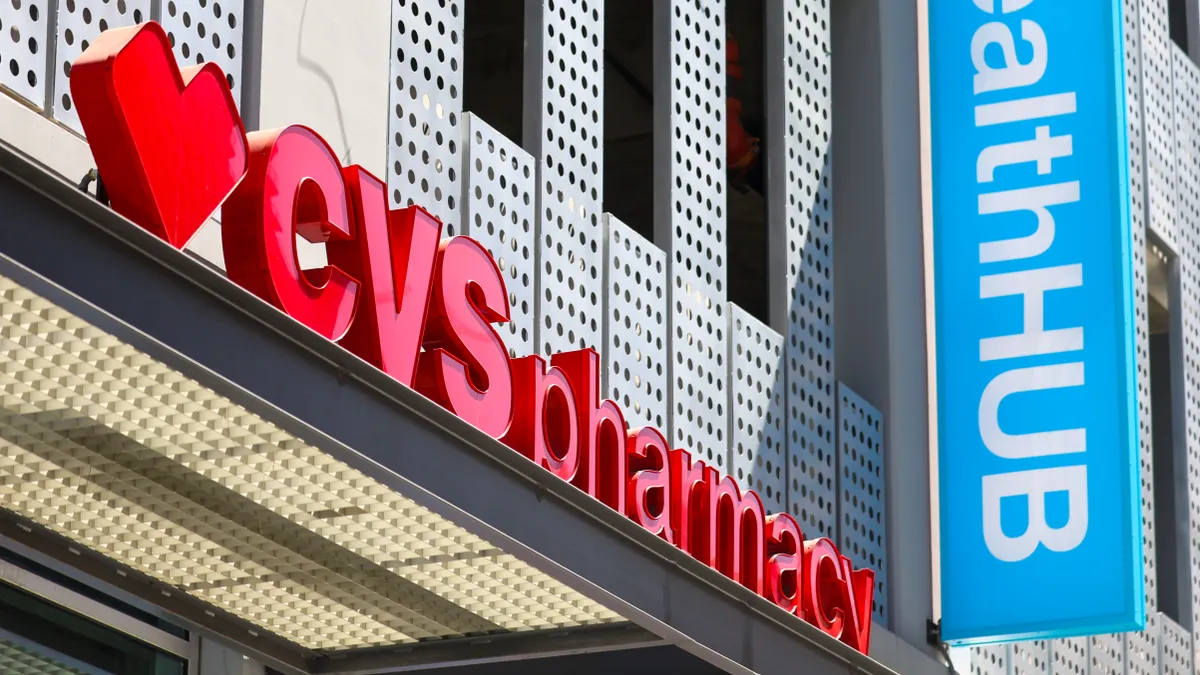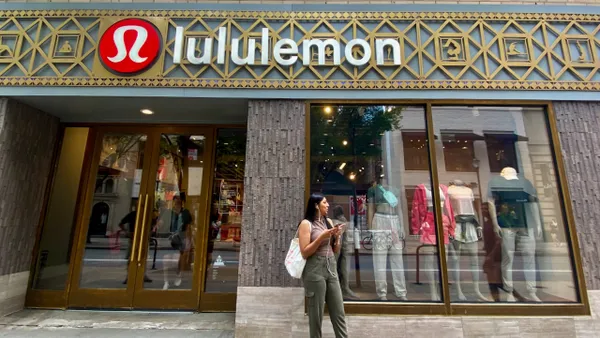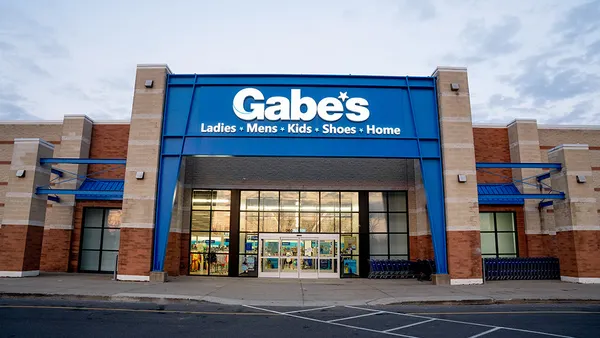Dive Brief:
- CVS Health replaced CEO Karen Lynch on Thursday as the healthcare and pharmacy giant’s financial challenges mount.
- CVS’ new chief executive is David Joyner, a company veteran who most recently headed up CVS pharmacy benefit manager Caremark. Lynch, who held the top spot at CVS since 2021 and previously led insurer Aetna, stepped down “in agreement with the company’s Board of Directors,” according to a release.
- The company also pulled earnings guidance provided last quarter due to higher medical costs in its Aetna health benefits segment. CVS’ stock fell more than 7% in early morning trade Friday following the news.
Dive Insight:
The executive shakeup comes as CVS has faced a declining stock price since 2021 and recent high medical costs, especially in Medicare Advantage. The pharmacy giant slashed its earnings outlook three times this year, and confirmed earlier this month it would lay off 2,900 workers.
During second quarter earnings in August, CVS removed Aetna head Brian Kane from his role and handed oversight to Lynch, citing the segment’s poor performance, and announced a plan to cut $2 billion in costs over the next few years. The company also recently said it would discontinue certain infusion services offered through its Coram business and close or sell 29 pharmacies in the coming months.
Joyner has served as executive vice president and president of the company’s Pharmacy Services since January 2023, according to a securities filing.
He was also executive vice president of sales and account services at Caremark from March 2011 to December 2019. Joyner previously worked at both Aetna and Caremark before they were acquired by CVS, according to his LinkedIn.
The management change isn’t surprising, given the challenges at CVS and its insurance segment Aetna, according to a note from Morningstar Senior Equity Analyst Julie Utterback. “However, investors may have been hoping for new blood from outside the organization,” she wrote.
In addition to the leadership changes, the company offered details on “weaker-than-anticipated” third quarter results, according to Utterback.
CVS reported preliminary adjusted profit range of $1.32 billion to $1.39 billion in the third quarter. It expects its medical loss ratio — a marker of spending on patient care — to be about 95.2% in the quarter, a significant climb from 85.7% reported last year.
CVS will also record a $1.1 billion charge for a premium deficiency reserve in the third quarter, primarily related to its Medicare and Affordable Care Act exchange businesses. The company will host an investor call about its earnings on Nov. 6.














